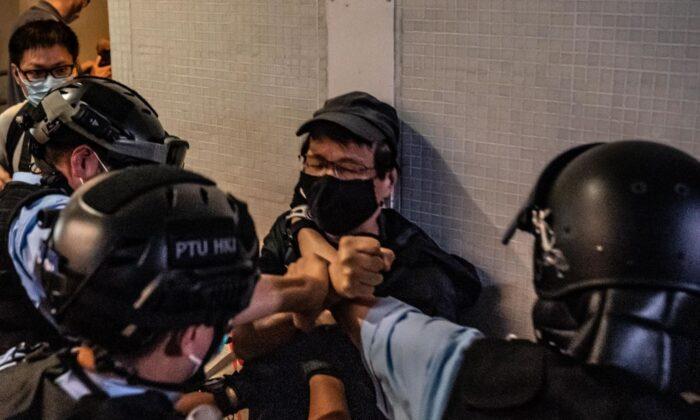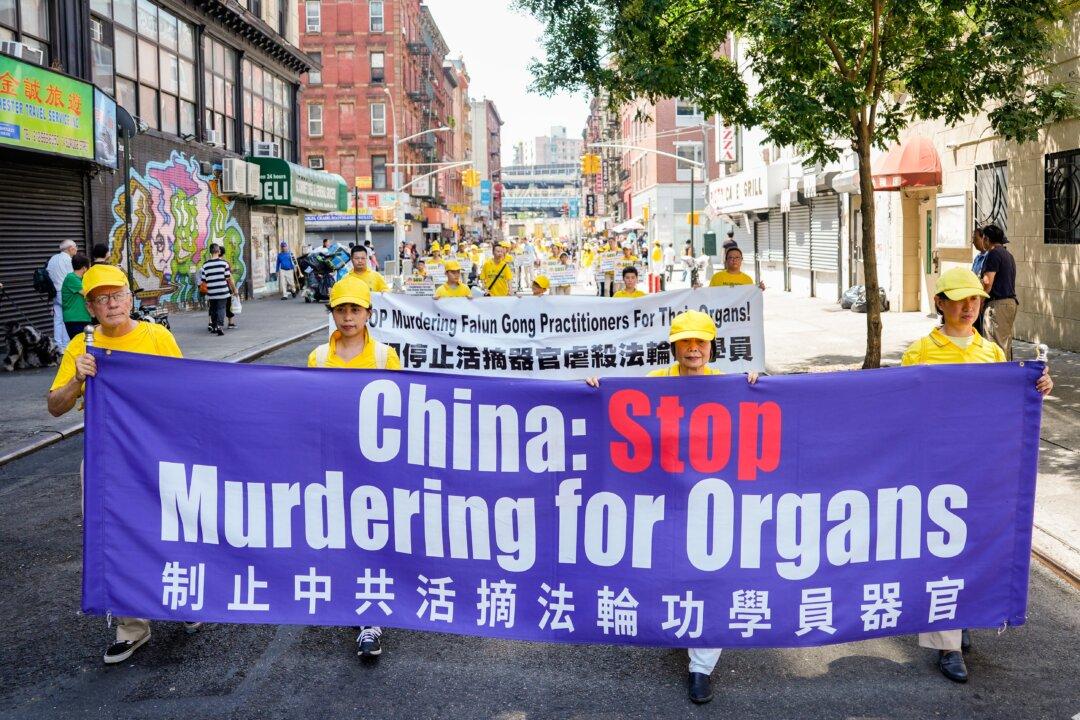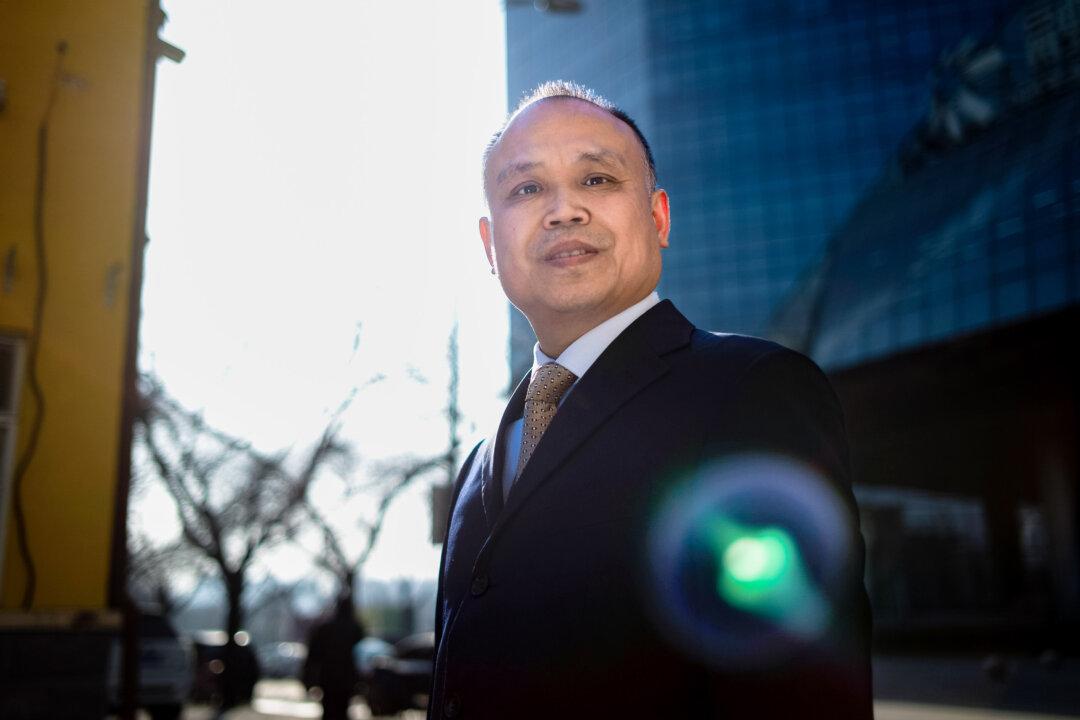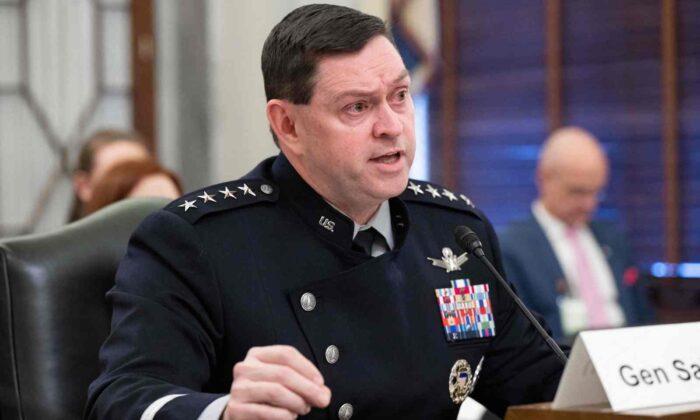A bipartisan group of eight U.S. lawmakers is calling attention to Hong Kong’s deteriorating autonomy amid the pandemic, in a letter dated April 28 to Secretary of State Mike Pompeo.
Hong Kong, a former British colony, was transferred to Chinese sovereignty in 1997—with Beijing promising that under the “one country, two systems” model, the city would maintain its autonomy and essential freedoms not afforded in the mainland.
But recent examples of Beijing’s interference in local affairs has drawn international concern.
The lawmakers added: “Failing to address Beijing’s efforts to erode Hong Kong’s autonomy will undermine the freedom and human rights of its people, its valuable role as a partner to the United States, and its unique role in the international economy.”
During an April 29 press conference, Pompeo addressed the situation in Hong Kong, saying, “We continue to monitor with growing concern Beijing’s increasing efforts to interfere.”
He indirectly referred to Chinese officials’ recent calls for Article 23, an anti-subversion law that many feared would impinge on civil liberties, to be reintroduced in Hong Kong. It was first proposed in 2003 and scrapped following a mass protest in July that year.
Hong Kong Act
In their letter, the lawmakers urged Pompeo to fully implement the Hong Kong Human Rights and Democracy Act. Signed into law by President Donald Trump on Nov. 27 last year, it requires that the U.S. Secretary of State certify annually whether Hong Kong is “sufficiently autonomous” to justify its special trading status distinguishing it from mainland China.The law also requires an upcoming report to Congress, which the lawmakers said they hoped would “contain a comprehensive, clear, and accurate assessment of Hong Kong’s autonomy.”
Millions took to the streets since June last year to protest a since-scrapped extradition bill. The movement has evolved into calls for greater democracy, as well as opposition to police violence against protesters. In recent months, the protests have quieted down due to the pandemic.
Recent Events
Hong Kong police arrested 15 pro-democracy activists on April 18, for allegedly “organizing or participating in unauthorized assemblies.”“The arrests included 81-year-old Martin Lee, a pillar of the pro-democracy movement in Hong Kong and staunch advocate of the rule of law and peaceful protest,” the lawmakers wrote.
The arrests—the biggest crackdown on the city’s pro-democracy movement since the mass protests last year—also included current lawmaker Leung Yiu-chung; Jimmy Lai, founder of Hong Kong’s pro-democracy newspaper Apple Daily; and nine former lawmakers including Lee.
The U.S. lawmakers also condemned the recent calls to pass Article 23 legislation in Hong Kong, which “would further restrict freedom and autonomy in service of Beijing’s definition of national security,” they said.
The U.S. lawmakers chided the Liaison Office and Hong Kong and Macau Affairs Office, Beijing’s highest agency for managing Hong Kong affairs, for their recent remarks about not being bound by Article 22 of Hong Kong’s Basic Law, the city’s mini-constitution.
The Hong Kong and Chinese government’s statements risk “further diminishing Hong Kong’s autonomy,” the U.S. senators’ letter said.
United Nations
U.S. lawmakers are not the only ones to voice concerns about human rights in Hong Kong.“We express our grave concern with the broad definition of what constitutes seditious speech, concerned that the broad definition may restrict legitimate expression,” rapporteurs wrote about the sedition law.
As for the anti-terrorism ordinance, the rapporteurs stated: “ We caution against broad and overly inclusive definitions of terrorism acts, which may result in unintended human rights abuses.”






Friends Read Free